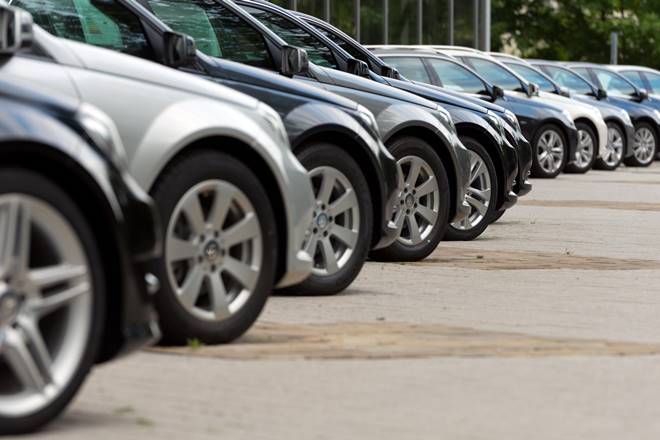Power tripping is an inconvenient problem that can cause disruptions in daily operations and affect productivity, especially in commercial properties. Imagine your business in the middle of an important task when suddenly, the power goes out. This might be due to an electrical power trip, which can be a result of faulty systems, overloaded circuits, or poor maintenance.
In this guide, we’ll walk you through the causes of power tripping in commercial properties and share practical steps on how to prevent it. By the end, you’ll know how to keep your business running smoothly without worrying about unexpected power issues. So, let’s dive in and discover how you can safeguard your business from power disruptions.
What Is Electrical Power Tripping?
Before we get into how to prevent power tripping, let’s take a quick look at what it actually means. Electrical power tripping happens when an electrical system in a property detects an issue or fault, causing the circuit breaker to trip and shut off the power. This is a safety feature designed to prevent electrical fires and other hazards.
Note: Is your electrical system causing frequent trips? Electrical Power Tripping Services Dubai is your go-to solution for diagnosing and repairing power issues. Don’t wait for an emergency—take action today. Reach out to Al Aksa Technical and Cleaning Service for professional inspection and maintenance to keep your electrical systems in top shape and avoid future disruptions.
When a circuit experiences a sudden increase in current or encounters a problem, the circuit breaker “trips” or automatically cuts off the power to that circuit. Although it’s a necessary safety mechanism, frequent tripping can indicate underlying problems in the electrical system.
Common Causes of Power Tripping in Commercial Properties
Overloaded Circuits
One of the most common causes of power tripping in commercial properties is overloaded circuits. When too many electrical devices or appliances are plugged into a single circuit, it can cause the circuit to overheat, leading to a power trip.
Commercial properties often have a high demand for electricity, with various devices running simultaneously, such as lights, computers, machinery, and HVAC systems. If the electrical system is not properly designed to handle this load, power tripping is bound to occur.
Faulty Wiring or Connections
Another cause of power tripping is faulty wiring or loose connections. Over time, wires can become damaged due to wear and tear or poor installation. If these wires are not properly connected or are damaged, they can cause a short circuit, triggering the breaker to trip.
This issue is more common in older buildings where the wiring might not meet current electrical standards. In these cases, it is essential to regularly check the wiring and make repairs as needed to prevent tripping.
Short Circuits
A short circuit occurs when a live wire touches a neutral wire, causing a sudden surge of electricity. This can be dangerous and lead to a power trip as the circuit breaker detects the surge and cuts off the power to avoid a fire.
Short circuits can happen for several reasons, including damaged wires, exposed cables, or malfunctioning electrical components. In commercial properties, short circuits can occur if the electrical equipment is not maintained properly.
Ground Faults
A ground fault happens when a live wire comes into contact with the ground or any conductive material. This can cause a power trip as the circuit breaker detects the irregularity in the electrical flow. Ground faults can happen in wet or damp environments where moisture increases the risk of electrical malfunctions.
In commercial properties, ground faults are common in areas like kitchens, bathrooms, or basements where water exposure is more likely.
Faulty Circuit Breaker
Sometimes, the problem is not with the electrical system itself but with the circuit breaker. If the circuit breaker is old or faulty, it may trip unnecessarily, even when there is no actual problem with the circuit.
If the breaker trips frequently, it could be a sign that it’s time to replace it or have it inspected by a licensed electrician.

How to Prevent Electrical Power Tripping in Commercial Properties
Now that we know the common causes of electrical power tripping, let’s explore some ways to prevent it and ensure the safety and smooth operation of your business.
1. Regular Maintenance of the Electrical System
The first step in preventing power tripping is ensuring that your electrical system is properly maintained. Schedule regular inspections with a professional electrician who can identify and fix any issues before they become major problems.
Electrical systems in commercial properties need to be regularly checked to ensure they are operating efficiently and safely. During maintenance checks, electricians will look for signs of wear and tear, faulty wiring, and outdated components that could cause power tripping.
2. Upgrade the Electrical System for High Demand
As your business grows, so does its demand for electricity. Over time, the electrical load increases with the addition of more equipment, appliances, and systems. If your current electrical system is not capable of handling the increased demand, it will cause frequent power trips.
To prevent this, consider upgrading your electrical system. This might include installing additional circuits, upgrading the main panel, or adding more power outlets to distribute the load evenly. By making these upgrades, you’ll ensure that the electrical system can handle your business’s growing needs without tripping.
3. Avoid Overloading Circuits
One of the simplest ways to prevent power tripping is to avoid overloading your circuits. Make sure that no single circuit is handling too many devices or appliances. If necessary, use power strips to distribute the load or install more outlets to spread out the electrical demand.
Pay attention to the wattage rating of the circuit and make sure it matches the total power consumption of all the devices connected to it. Overloading a circuit is one of the easiest ways to cause a power trip, so always be mindful of how much electrical load a circuit is carrying.
4. Replace Faulty Wiring and Components
Faulty wiring and damaged components are major contributors to electrical power tripping. If your commercial property is older, the wiring may be outdated and prone to wear and tear. In these cases, it’s essential to replace old or damaged wires and components to prevent power tripping.
Make sure to hire a licensed electrician to inspect and replace any faulty wiring, as improperly installed or repaired wiring can be dangerous. Regularly check electrical connections for signs of corrosion, wear, or damage to keep your electrical system safe and reliable.
5. Install Surge Protectors
Power surges can cause electrical systems to malfunction and lead to power tripping. These surges can happen for various reasons, including lightning strikes or sudden spikes in the electrical grid. To protect your equipment and prevent power trips, consider installing surge protectors throughout your commercial property.
Surge protectors can help absorb excess voltage and prevent it from damaging your electrical equipment or causing the circuit breaker to trip. Install surge protectors at critical points, such as the main electrical panel and areas with sensitive equipment like computers and servers.
6. Ensure Proper Grounding
Grounding is an important aspect of electrical safety. Proper grounding ensures that electrical currents flow safely to the ground instead of causing hazards like electrical shock or fire. In areas with high moisture, such as kitchens or bathrooms, make sure that the electrical system is properly grounded to reduce the risk of ground faults.
Have an electrician inspect your grounding system and ensure that all electrical equipment is connected to a reliable ground. This will reduce the chances of electrical power tripping due to ground faults.
7. Replace Old or Faulty Circuit Breakers
If your circuit breaker trips frequently, it could be a sign that the breaker itself is faulty or outdated. Circuit breakers can wear out over time, especially in older properties. If you notice that the circuit breaker is tripping without any clear reason, it’s a good idea to replace it.
A licensed electrician can inspect the breaker and replace it with a new, more reliable one. This will help prevent unnecessary power trips and improve the overall safety of your electrical system.
Conclusion
Preventing electrical power tripping in commercial properties is essential for ensuring smooth operations and maintaining a safe working environment. By identifying the common causes of power tripping and taking the necessary steps to prevent them, you can safeguard your business from costly interruptions.
Regular maintenance, upgrading your electrical system, avoiding overloading circuits, replacing faulty components, installing surge protectors, and ensuring proper grounding are all effective strategies to prevent electrical power tripping. By following these tips, you can minimize the risk of power disruptions and keep your business running smoothly without the worry of unexpected power outages.
For More Insightful Articles Related To This Topic, Feel Free To Visit: kataberita.





